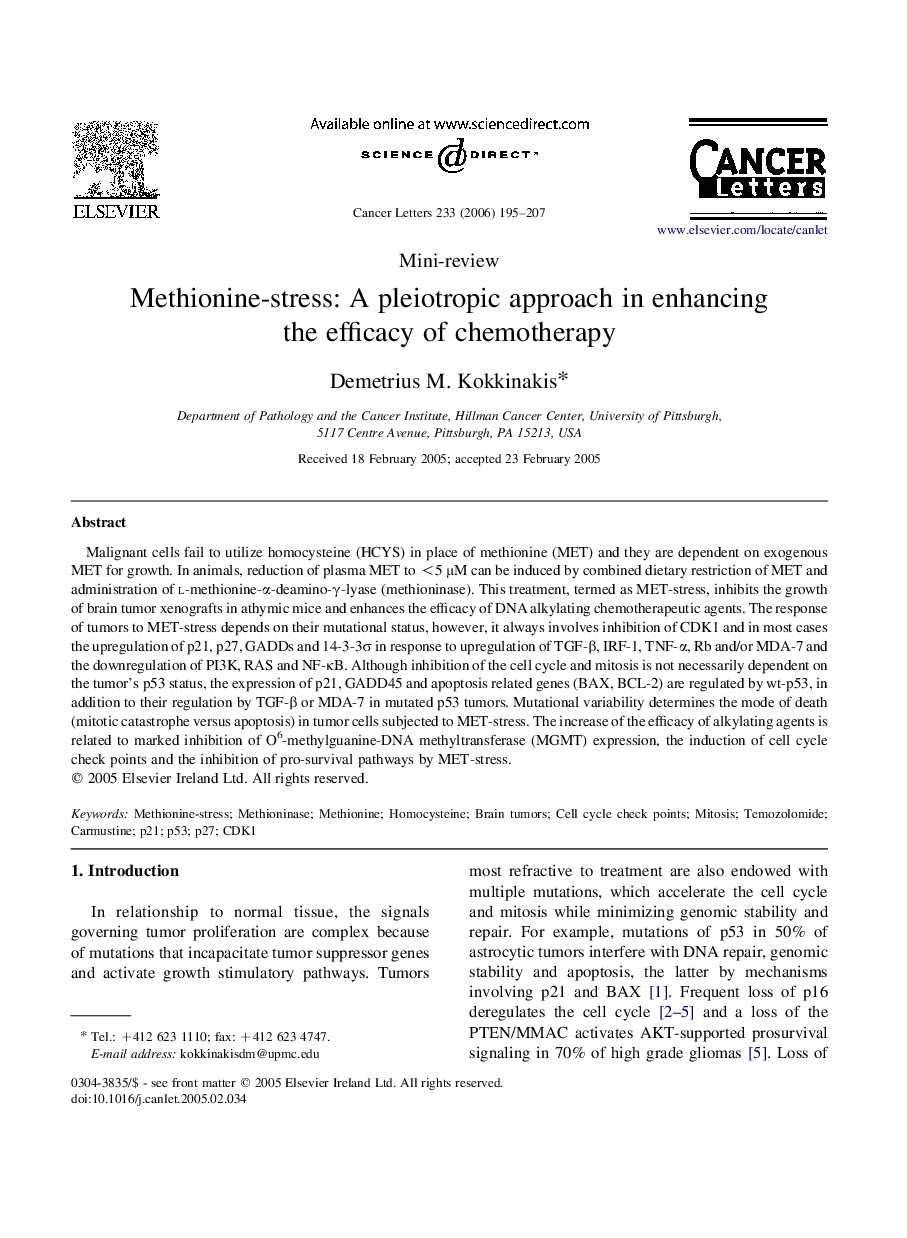| Article ID | Journal | Published Year | Pages | File Type |
|---|---|---|---|---|
| 2115903 | Cancer Letters | 2006 | 13 Pages |
Malignant cells fail to utilize homocysteine (HCYS) in place of methionine (MET) and they are dependent on exogenous MET for growth. In animals, reduction of plasma MET to <5 μM can be induced by combined dietary restriction of MET and administration of l-methionine-α-deamino-γ-lyase (methioninase). This treatment, termed as MET-stress, inhibits the growth of brain tumor xenografts in athymic mice and enhances the efficacy of DNA alkylating chemotherapeutic agents. The response of tumors to MET-stress depends on their mutational status, however, it always involves inhibition of CDK1 and in most cases the upregulation of p21, p27, GADDs and 14-3-3σ in response to upregulation of TGF-β, IRF-1, TNF-α, Rb and/or MDA-7 and the downregulation of PI3K, RAS and NF-κB. Although inhibition of the cell cycle and mitosis is not necessarily dependent on the tumor's p53 status, the expression of p21, GADD45 and apoptosis related genes (BAX, BCL-2) are regulated by wt-p53, in addition to their regulation by TGF-β or MDA-7 in mutated p53 tumors. Mutational variability determines the mode of death (mitotic catastrophe versus apoptosis) in tumor cells subjected to MET-stress. The increase of the efficacy of alkylating agents is related to marked inhibition of O6-methylguanine-DNA methyltransferase (MGMT) expression, the induction of cell cycle check points and the inhibition of pro-survival pathways by MET-stress.
